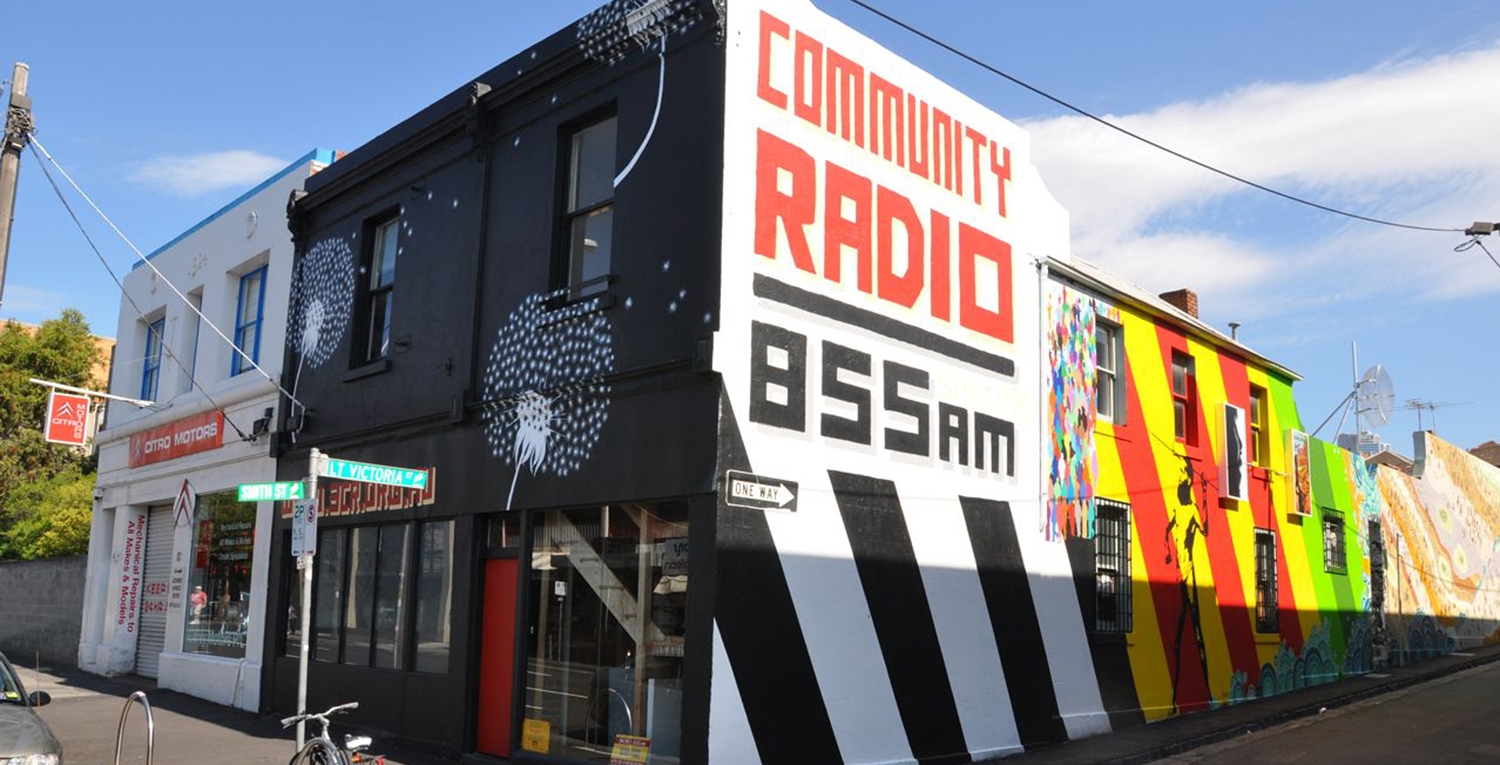“I’ve always had that love of music that community radio has, as well as the political side, the social side, the community side”.
Elliot is acutely aware of the difficult financial context within which community radio exists. And for community radio station 3CR, which unlike fellow community broadcasters Triple R and PBS eschews sponsorship, the struggle to maintain a functioning transmission and programming infrastructure is even tougher.
Elliot has been involved in community radio for 40 years, since the early days of RMIT’s community radio station back in the 1970s. “I tended to get into trouble a lot at Triple R and PBS,” Elliot says. “I got the notorious letter from the program manager saying that I’d played a song with the word ‘fuck’ in there. They had to do that because it was part of the charter, and the Broadcasting Tribunal was very tough on that in those days. Now when you hear stuff on Triple R, PBS and 3CR like Too Drunk to Fuck, there’s no come back. It’s now within the limits. Times have definitely changed.”
3CR was conceived in the dying days of the Whitlam Government in late 1975, when a cooperative of community organisations was awarded a limited commercial radio licence by the then Broadcasting Minister, Moss Cass. From its initial establishment, 3CR was avowedly radical in its programming. Fittingly, 3CR’s first broadcast was on May 1, the annual international celebration of the trade union movement and working class politics.
“3CR is very left wing and it wears that on its sleeve,” Elliot says. “The other community radio stations have people behind it with progressive politics, but with 3CR it’s very overt.”
3CR’s ongoing radical edge is illustrated by programs devoted to LGBTI, Indigenous and other progressive causes. In the time-honoured fashion of radical politics, 3CR has also had its share of fractious ideological divisions, with splits between Maoists, Leninists and anarchist factions. “But that’s all settled down now,” Elliot says.
Like other community radio stations, 3CR is heavily dependent on listener subscriptions. But because 3CR doesn’t accept paid sponsorship or other advertising, 3CR relies on regular fundraisers to meet its operating costs. “That was a conscious decision so that the station was more independent,” Elliot says. “The money they get is subscriptions, donations, bequests and benefits.”
Because of his support for the 3CR cause – and community radio generally – Elliot set about organising a fundraising event. One event quickly became two, a spoken-word oriented show at Bella Union and a music-themed fundraising gig at Northcote Social Club.
Melbourne comedian and community radio broadcaster Fiona Scott-Norman will be reprising her The Needle and the Damage Done stage show. Accompanying Scott-Norman on the Thursday night bill will be Clem Bastow, Casey Bennetto, Scott Edgar and Christos Tsiolkas for a performance of their free association radio show, Superfluity 3RRR. Renowned music historian Ian McFarlane will also launch the new edition of his Encyclopedia of Australian Rock and Pop.
With various musical acts also agreeing to contribute to the cause, Elliot quickly realised that he had more than enough – too much, in fact, for a single show. “We decided to have a show specifically for the rock acts – Ekranoplans, Winter Sun and BJ Morriszonkle, who people probably haven’t heard a lot of. BJ Morriszonkle is the epitome of creativity. He’s an absolute one-off.”
A world without 3CR, Elliot says, is a fundamentally diluted cultural and political environment. “Community radio serves all these little pockets of music from all around the world. Unless community radio plays it, it’ll never be played on the radio,” Elliot says.
“I think 3CR gives marginalised people the power of voice, in creative arts and in the political side of things. If we don’t have community stations like 3CR, the world is much more flat and grey, and everything is reduced to money. We need to give the opportunity for people who don’t have a voice, to actually have a voice, and to be able to get out there.”
By Patrick Emery

